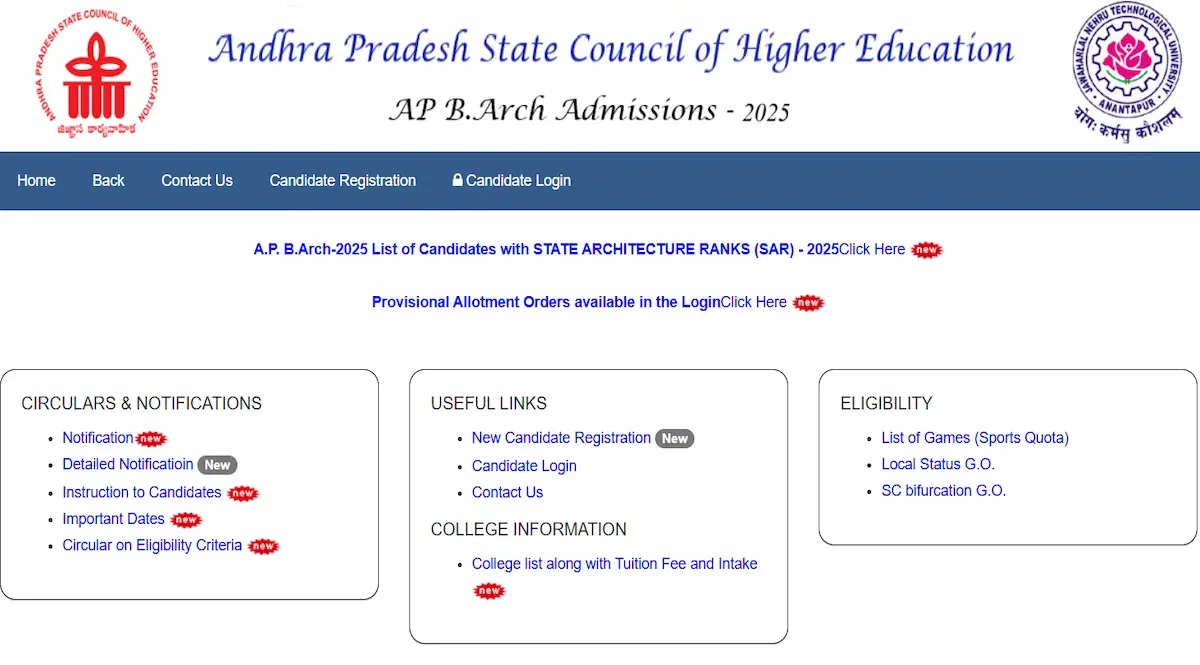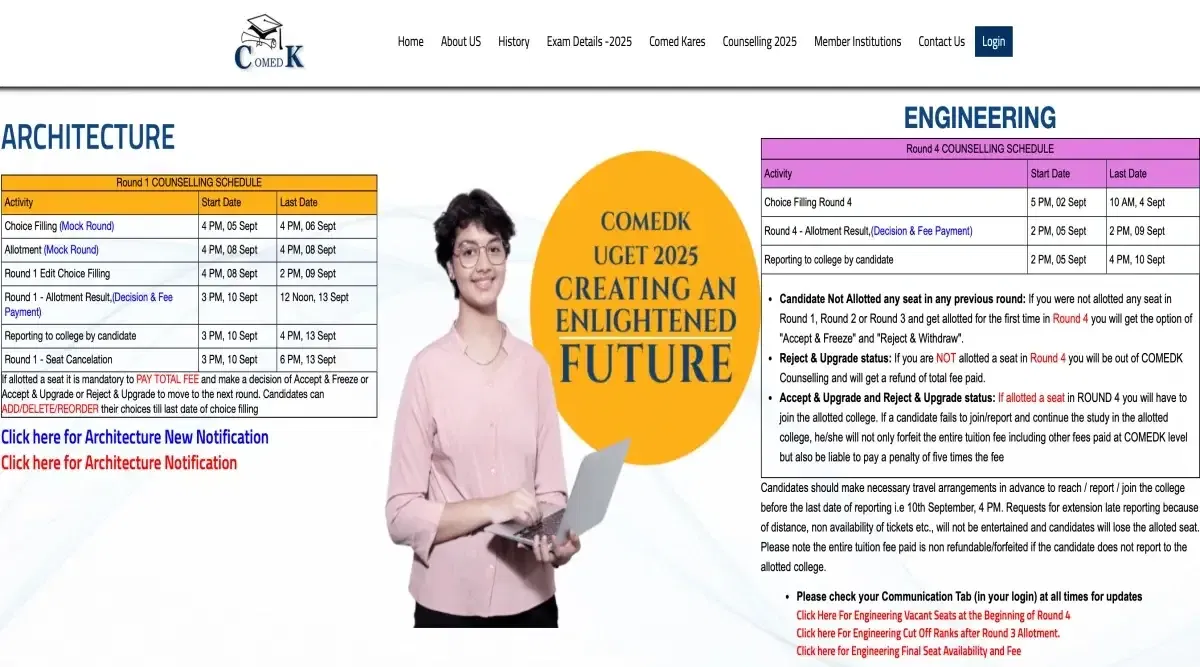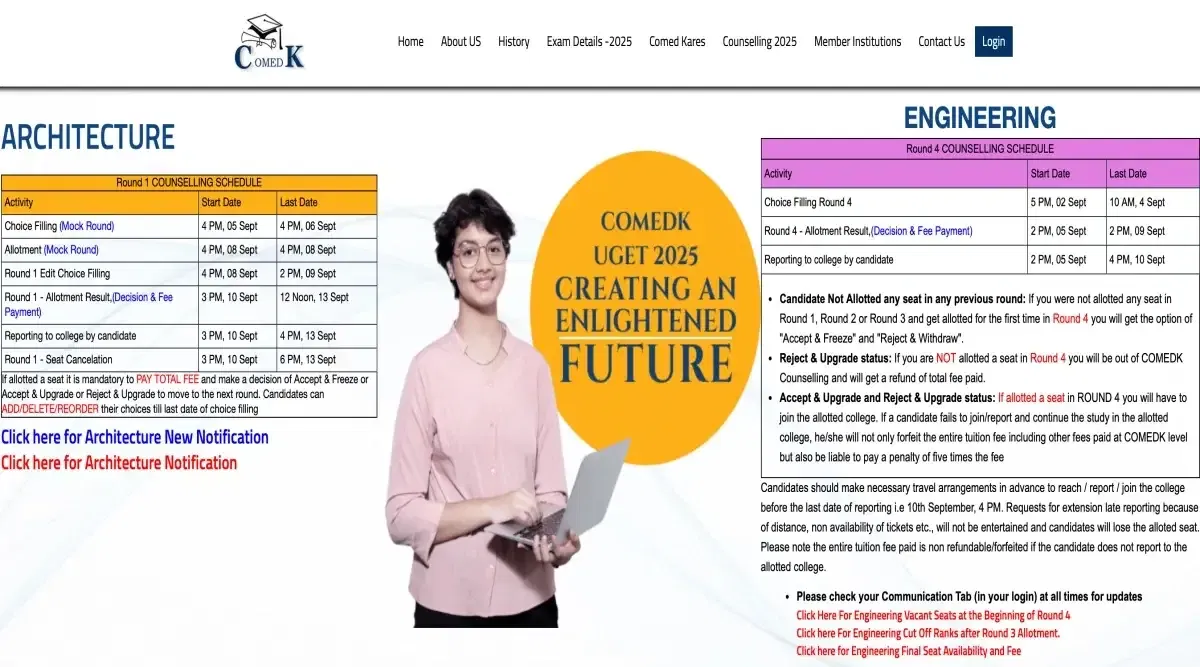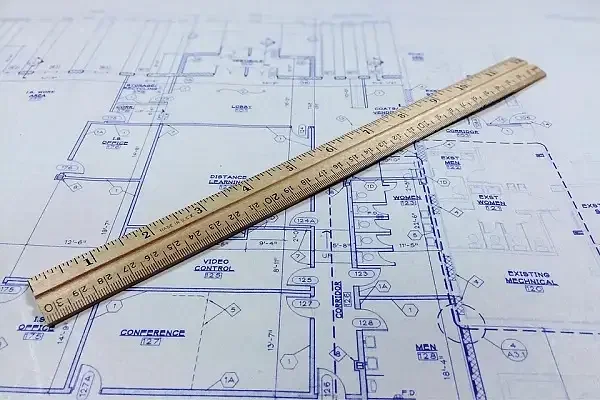Architecture Courses after 12th in India include courses like Bachelor of Architecture in Building and Construction Management, Bachelor of Planning (B.Plan), and Bachelor of Engineering in Construction Technology. And colleges like School of Planning and Architecture, New Delhi, IIT Kharagpur, IIT Roorkee, and Sir JJ College of Architecture, Mumbai are a few along others are offering these courses.
Table of Contents
Architecture courses after 12th in India include courses like Bachelor of Architecture (B.Arch), and Bachelor of Architecture in Landscape Architecture along with other. The Architecture courses provides students with deep knowledge of building commercial buildings, airport terminals, highways construction, malls, complexes, and civil construction by applying basic concepts and innovative ideas. Architecture is a culmination of art, science, and the ability to manage the construction of a building.
List of Architecture Courses After 12th
Students need to understand that all architecture courses are in demand somehow or the other and differ on several criteria and levels. Let's take a look at some of the top architecture courses after the 12th.
- Bachelor of Architecture (B.Arch)
- Bachelor of Architecture in Landscape Architecture
- Bachelor of Architecture in Building and Construction Management
- Bachelor of Planning (B.Plan)
- Bachelor of Engineering in Construction Technology
Bachelor of Architecture (B.Arch)
Bachelor of Architecture is a five-year undergraduate program that students can start after 10+2 with a minimum of 50% marks. The University of Grants Commission created the course to ensure licensed and professional ethical architects can take up private and public/ government constructions. The architectural course includes:
- Designing models of the building.
- Formulating construction's blueprint.
- Other physical structures of any land and building.
B.Arch is one of the most famous architecture courses after 12th. Students majorly from science backgrounds opt for this course, and some students with a design background. B.Arch graduates have substantial and ever-living demand regarding employment and career opportunities in the job market, which mainly tests their skills and creativity.
B.Arch Key Insights:
- Course Full Form: Bachelor of Architecture
- Duration: 5 Years
- Eligibility: 50% in 10+2 from science group, with PCM as mandatory subjects.
- Entrance Exams: NATA
- Course Fees: INR 1.5 - 5 LPA
- Subjects Offered: History of architecture, Descriptive Geometry, Theory of Structures, Architectural Construction, Quantity Surveying, Specification, etc.
- Average Salary Offered: INR 4.5 LPA
Bachelor of Architecture in Landscape Architecture
Bachelor of Architecture in Landscape Architecture course duration is three years. It is a basic architecture program that primarily focuses only on landscape architectural design and analysis. The Department of Landscape Architecture & Environmental Planning(DLAEP) constitutes a four-year bachelor of arts degree in landscape architecture specializing in environmental planning. Landscape architecture encompasses Ecology, Environmental Up-Gradation, Industrial Landscape, Green belts, and more. In terms of job scopes, most of the course graduates are hired for commercial complex projects and constructors.
B.Arch Landscape Architecture Key Insights:
- Course Full Form: Bachelor of Architecture
- Duration : 3 Years
- Eligibility: 50% in 10+2 from science group, with PCM as mandatory subjects.
- Entrance Exams: NATA, BITSAT
- Course Fees: INR 2- 7 LPA
- Subjects Offered: History of Architecture, Building Materials, Construction, Theory of Structures, Landscape Architecture, Design Materials, Town Planning, etc.
- Average Salary Offered: INR 6 LPA
Bachelor of Architecture in Building and Construction Management
Bachelor of Architecture in Building and Construction Management is a five-year undergraduate course that offers more importance to construction management. The course focuses on supervision techniques and surveying and a basic understanding of designing and construction. The coursework provides subjects like design structure, material management, acoustics, etc. Upon completing the course, graduates can get several job opportunities such as data analyst, architecture designer, architecture engineer, interior designer, etc., in both the private and public sectors.
B.Arch Building and Construction Management Key Insights:
- Course Full Form: Bachelor of Architecture
- Duration: 5 Years
- Eligibility: 50% in 10+2 from science group, with PCM as mandatory subjects.
- Entrance Exams: NATA, BITSAT
- Course Fees: INR 2- 6 LPA
- Subjects Offered: History of Architecture, Building Materials, Surveying, Building Safety, Design Materials, Environmental Studies for Construction, etc.
- Average Salary Offered: INR 5.4 LPA
Bachelor of Planning
Bachelor of Planning is a 4-year undergraduate course. A candidate who wants to pursue this course must hold their higher education certificate for the admission process with 50% marks along maths subject. The semester is divided into eight parts. The average course fee ranges from INR 1 to 2 Lakh. For admission to this course, the student has to attend the entrance test. The students can pursue their careers in urban planners, regional planners, project planners, design architects, interior designers, etc. The program aims to build students for a research-based dissertation and specialize in a wide range of designing, engineering, managing, and resolving challenges.
B.Planning Key Insights:
- Course Full Form: Bachelor of Planning
- Duration : 3 Years
- Eligibility: 50% in 10+2 from science group, with PCM as mandatory subjects.
- Entrance Exams : NATA, BITSAT,KCET,etc.
- Course Fees: INR 2- 10 LPA
- Subjects Offered: Applied Geology and Hydrology, Planning Studio, Traffic and Transport Planning, Planning Theory, Design Materials, etc.
- Average Salary Offered: INR 2.5- 5 LPA
Bachelor of Engineering in Construction Technology
B.E. in construction technology is an undergraduate architecture science and technology course, and the duration of the program is four years. The eligibility for this course is 10+2 with an aggregate score of 55%, and some colleges conduct entrance exams for admission. The course is beneficial to prepare the graduate for further roles in managing people, equipment, materials, technological process, and funds in construction.
Students learn basic engineering, and other professionals supervise the construction of buildings and other structures. They can pursue careers as construction managers, project managers/managers, civil engineers, and asset management in various industries, including consulting engineers, construction, research organizations, private sector, local, and other government authorities.
B.E. Construction Technology Key Insights:
- Course Full Form: Bachelor of Engineering
- Duration: 4 Years
- Eligibility: 50% in 10+2 from science group, with PCM as mandatory subjects.
- Entrance Exams: BITSAT, JEE Mains, etc.
- Course Fees: INR 1.5- 4 LPA
- Subjects Offered: Mechanics of Solids, Mechanics of Fluids, Irrigation Engineering, Design of Steel Structures, etc.
- Average Salary Offered: INR 3- 6 LPA
Diploma Courses in Architecture
Diploma in Architecture after 12th under Architectural Engineering is a certificate-level course in the field of Architectural engineering. Candidates can pursue the course after completion of their class 10th or 12th education. The time duration of this course is three years. Some of the courses for architecture under diploma degree are listed below:
- Diploma in Architectural Assistantship
- Diploma in Architecture Engineering
- Diploma in Construction Management (DCM)
Diploma in Architectural Assistantship
Diploma in Architectural Assistantship Course duration is three years. The minimum eligibility to pursue this course is a candidate must complete 10th & 12th from a recognized board. An entrance exam is held for admission to this diploma course. For that, the minimum age limit of the candidate should be 15 years. The course is suitable for candidates who have excellent communication skills and express their oral and written form ideas.
Diploma in Architecture Engineering
Candidates can pursue a diploma in architecture engineering course after completion of their class 10th. The course duration is for three years, and the course fee is between INR 8,000 to 85,000. Admission to the course depends on the merit basis: the percentage of candidates' marks in class 10th standard examinations. After completing the diploma in architecture engineering, students can look for various options to opt for a career in building designing, assistant architecture, layout design, teaching, etc.
Diploma in Construction Management (DCM)
The diploma in Construction Management course duration is a 1-year. If the candidate wants to pursue this course as a distance learning course, the duration may differ. The minimum eligibility to apply for this course is a Higher Secondary qualification with Physics, Chemistry, and Mathematics from any acknowledged board.
Diploma in Construction Management students can opt for their careers as project engineers, managers, civil engineers, assets management engineers in various organizations.
Certificate Architecture Courses in India
Architecture may not be pursued as a degree or a diploma by all. Some do prefer to opt for short-term courses to enhance their practical knowledge of the domain. The certificate course for Architecture design is 3d software design in a virtual building design course using Autocad,3Ds max Vray, and Sketchup.
- Certificate Course 3D Architectural Visualization (CCID)
- Certificate Course 3D Interior Design Visualization (CCIDV)
Certificate Course 3D Architectural Visualization (CCID)
- Eligibility Criteria: 10+2/Diploma in any stream
- Duration of Course: 6 Months
- Subjects Offered: AutoCAD, Photoshop, 3D studio Max+Vray, Sketch-up, and Revit Architecture.
Certificate Course 3D Interior Design Visualization (CCIDV)
- Eligibility:10+2/Diploma in any stream
- Duration of Course: 6 Months
- Subjects Offered: AutoCAD, Photoshop, 3D studio Max+Vray, Sketch-up, and Revit Architecture.
Top Colleges for Architecture Courses
Some of the best architecture colleges in India are listed below,
- School of Planning and Architecture, New Delhi
- IIT Kharagpur
- IIT Roorkee
- Sir JJ College of Architecture, Mumbai
- NIT Trichy
- Jadavpur University
- BIT Mesra
- CEPT University
- Chandigarh College of Architecture
- Jamia Millia Islamia University
Objectives Of Architecture Course After 12th
The various perspectives in the field of architecture and how students get influenced by it are mentioned below.
- The course will help the students gain a better insight into various design theories and methods.
- Your understanding of design procedures and processes will improve.
- The students will learn a notch of the infield and understand previous designs and architectural criticism.
- An architect must have structured imagination, creative thinking, the ability to innovate and be a leader. Students will heighten these qualities during the course.
How to Become an Architect After 12th In India?
To pursue a career in architecture, students should ensure that they hold any certification or degree in the field of study. Students must clear some eligibility criteria for admissions into architecture courses, just like any other degree or domain. The admission process will be solely based on the eligibility criteria the respective university offers the course. Some of the architecture eligibility after 12th are listed below:
- Candidates must possess 50% marks in aggregate at 10+2 level or equivalent with Mathematics as mandatory subjects.
- Candidates with 10th+3 years Diploma (any stream) recognized by Central/State Governments with 50% aggregates marks can also apply.
- Candidates seeking admission to B.Arch should have a valid NATA score conducted by the Council of Architecture.
Master of Architecture (M.Arch) Eligibility Criteria:
Following are the eligibility criteria to apply for the M.Arch course at various colleges/ universities in India:
- The candidate must hold a Bachelor of Architecture degree from a recognized board. The minimum percentage in previous years of study is 50%
Certification in Architecture Eligibility Criteria:
- A self-attested copy of mark sheet of 10+2 or equivalent examination having at least 50% marks in aggregate with Mathematics as a subject of examination at 10+2 level. Besides, a self-attested copy of the final recognized architectural qualification certificate based on which registration is sought, i.e., 5-year B. Arch, can be submitted.
Architecture Career After 12th
The previous century saw tremendous growth in the scope of architecture and its transformation of villages to cities. With the existence of architects, new concepts, and designs implementing new technological inputs, they provide professional services to new constructions, alterations, renovations, etc.
A career in architecture is attractive, high paying, and has lots of growth potential. Apart from associating with an organization, architects can also venture into the field as freelancers and projects. Specialization works well for better prospects in architecture, as there are several aspects to consider for designing a perfect model both in the interior and exterior. Architects have a spectrum of job designations that they can get hired for. Let us discuss some of the popular job designations for architecture graduates.
Architect Jobs
When people hear the word "architect," they imagine someone behind a computer or a draft table drawing bridges or dams. More in the field of architecture meets the eye, and listed below are some of the architects working under different layers of architecture.
- Landscape Architects: They are involved in environmental restoration, stormwater management, designing recreational areas, and so on. Designing outdoor areas for private businesses is their main area for focus because their field of work involves interaction with trees, plants, and other living materials with knowledge of horticulture and a way to integrate the living with the architecture.
- Industrial Architects: These people design industrial projects like bridges, hydroelectric dams, and other large industrial projects, and they have a solid understanding of engineering principles. Industrial architecture can be considered the primary component as they design buildings rather than public and private buildings. It encompasses advanced knowledge of science and engineering.
- Commercial or Public Architects: Public building architecture plays a role in the definition of development of society with different types of architecture to symbolize other ideas: public design buildings, airports, malls, libraries. These public/commercial buildings are constructed with depth in engineering and construction, specializing in more significant state government and business ventures. Being an architect of a public building helps to instill concepts with culture.
- Freelance Architects: Self-employed architects have full-reign projects. Their primary role is meeting with clients, preparing all preliminary estimates and specifications using computer software, or drawing plans. They manage construction contracts, conduct business, and seek through networking, marketing, and advertising. The main field of work for self-employed architects is in the structure where people live, work, shop, eat, learn, or play.
- Architectural Historians: These guys do not design buildings or dams, but they research and write about the history of architecture. Their employment is in archives, museums, institutions, government agencies, non-profits, and freelance consultants and writers. They manage to conduct historical research and evaluation for historic sites or provide technical support for the community regarding preservation programs.
Architecture Salary in India
The architect salary in India has produced well-experienced incumbents by different private organizations depending on the productivity and value addition. The salary of a beginner can gradually increase with experience. The salaries vary widely within the field, with private companies paying more than the government sector to hire skilled architects.
| Designation | Average Pay |
| Junior Architect | INR 5 LPA |
| Senior Executive | INR 8 .5 LPA |
| Manager | INR 12 LPA |
| Senior Manager | INR 14 LPA |
| Interior Designer | INR 7.66 LPA |
| Urban Planner | INR 5.44 |
| Landscape Architect | INR 6 LPA |
| Urban Designer | INR 7.7 LPA |























POST YOUR COMMENT